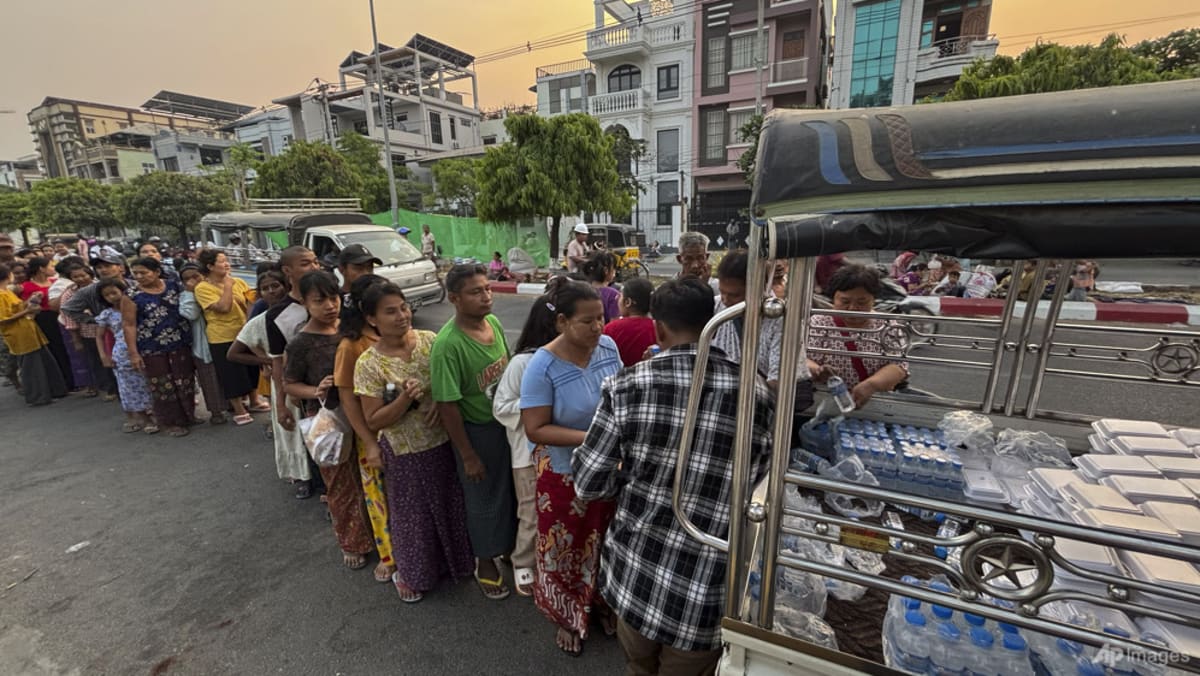FRANTIC AID
AFP journalists saw frantic scenes as hundreds of desperate people scrambled for aid distribution in Sagaing, the city closest to the epicentre of the quake, with some running through traffic to join the queues.
Volunteers handed out water, rice, cooking oil and other basic supplies to residents clamouring for assistance.
“I have never queued for food like this before. I can’t express how worried I am. I don’t know what to say,” Cho Cho Mar, 35, carrying her baby and clutching instant coffee packs and mosquito repellent, told AFP.
Destruction in the city is widespread, with the World Health Organization (WHO) reporting that one in three houses have collapsed, and five days after the quake locals complained of a lack of help.
Aye Thi Kar, 63, head of a school for young nuns razed to the ground by the tremors, said food supplies were low but shelter was a bigger priority – along with nets to ward off mosquitos in the stifling tropical heat.
Many people have been sleeping in the streets since the quake hit, unable to return to damaged buildings or fearful of aftershocks.
“Right now we need roofing and walls to have proper shelter for the night,” she told AFP.
“We also need nets and blankets for sleeping, as we don’t want to sleep directly on the ground.”
Healthcare facilities, damaged by the quake and with limited capacity, are “overwhelmed by a large number of patients”, while supplies of food, water and medicine are running low, WHO said in an update.
Hopes of finding more survivors are fading, but there were moments of joy on Wednesday as two men were pulled alive from the ruins of a hotel in the capital Naypyidaw.
